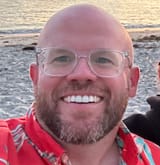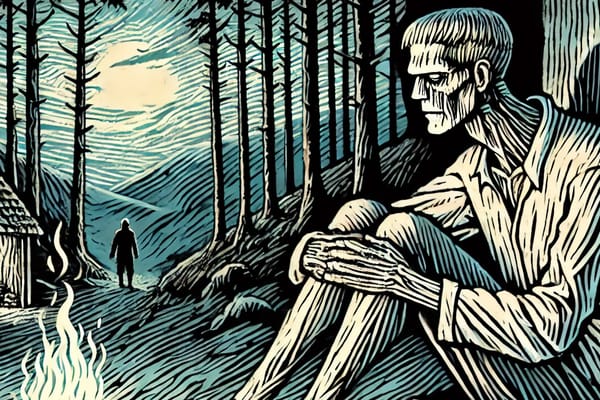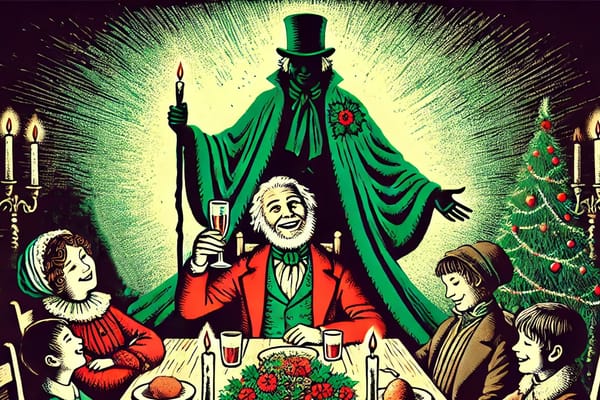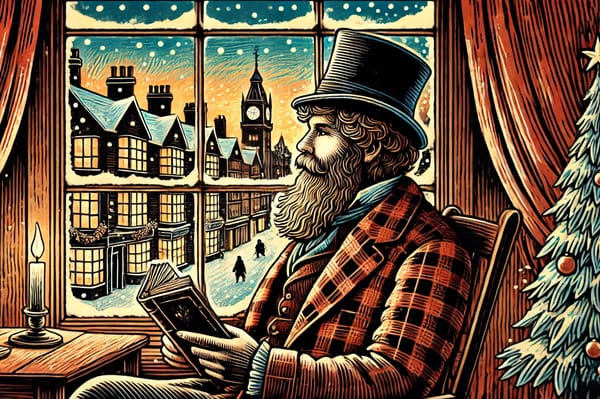On Flaws
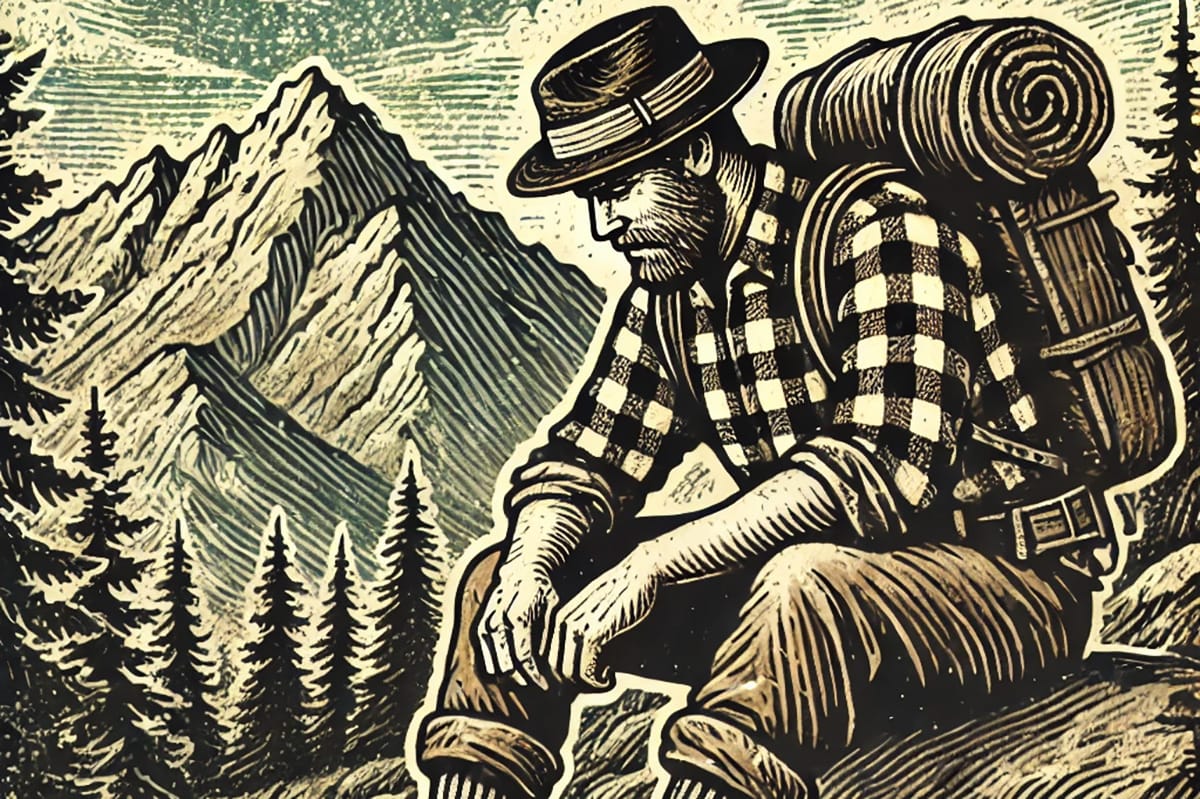
Perfection is the Opposite of Growth - If this article sucks. It's ok.
These days, I sense a rising tide pushing the idea—often subtly, but also sometimes quite overtly—that for a man, failure is weakness.
I sense it in politics, media, sports, and it permeates social media, discussion boards, comment sections, and, at times, conversations.
Perhaps this has always been a part of how society and culture perceive masculinity? (Last year, mid-election, The Atlantic's Tom Nichols tried to tug on this string, looking at a shift in political character qualities post WWII. An evolution from "the message that being an honorable man meant doing your job, being good to your family, and keeping your feelings to yourself" to a current mishmash of masculinity represented by opposite forces of "quiet men" and "pseudo macho culture.")
It is probably true that the teenage and twenty-something version of myself would certainly balk at the concept of opening up, revealing flaws, and admitting uncertainty. But as I have grown and strived to develop into a better version of myself, I have experienced mostly positive results of admitting when my actions, words, or thoughts don't match my values.
Being flawed and showing the "cracks in the armor" is, to my forty-year-old self, exactly what makes a man "good."
And yet, when faced with this unspoken code of masculine performance, it's tough to know what to do, and it still seems taboo to violate this manliness norm. The rise of the internet, YouTube, and social media has led to an increase in posturing about ideals of masculinity. This seems to be the reality of our current life now bleeding more and more into how certain men act, especially around other men.
Writing about flaws, and, when I feel confident enough, admitting my own, is my attempt to fight back and act in opposition to this exhausting and dishonest approach to manhood.
I contain multitudes; again, falling back on the wisdom of Whitman. Dealing with struggles, making mistakes, recognizing flaws, and still fighting to overcome them (and be open about it all) is, to my mind, heroic and quintessentially what makes us effective as men.
I don't need to solve this for everyone. However, to share, the tool I use to gauge my thoughts and feelings on big, weighty ideas is to hold my thinking against storytelling, myth, and literature, especially the "sources" that are passed down continually across the history of human experience. A great place to measure thoughts and emotions against universal wisdom is to read the classics.
And, nothing has stood the test of time longer than Homer's Odyssey.
The Beautifully Flawed Hero
I wouldn't say that I love The Odyssey.
But I have read it many times, over different seasons of my life, and have taken a little something different from it each time.
I read it in school as a kid, and maybe thought it was cool to see some of the mythology taught over the school years presented in a more expansive form. As a middle school English teacher, I taught Bernard Evslin's Roman-mythological version of the book Ulysses. Initially, my teaching centered on the fantastical adventure and wildly creative monsters. But something interesting happened during my teaching tenure. I took classes at the Harvard Extension School, working towards a master's degree (Unfinished! My great failure.) I was lucky to take a course on Greek literature with Harvard professor Gregory Nagy. Slowly engaging with Homer's epic—discussing key Ancient Greek concepts and doing some light translation—changed my understanding significantly, and I felt like I was reading something for the first time. This impacted my teaching moving forward. The focus shifted to the hero, examining both his strengths and weaknesses, which allowed me to use characters and situations as life lessons for my charges.
I have since recently read the highly-praised Emily Wilson translation of The Odyssey.
So, I get it. I understand why some people eagerly share that they read Homer's tale every single year. It is rich in wisdom and guidance on living a good life.
It also centers on one of literature's most complex men: the hero Odysseus.
Flaws Make the Man a Hero
As an older reader, Odysseus is the ultimate flawed hero. He's a model for the impact errors can have on family, friends, legacy, and how to overcome the mistakes while still being inherently good. He is multifaceted. He has strong values, but sometimes fails to live up to them, resulting in negative consequences. And yet he persists.
Odysseus, especially the character in The Iliad, is not just a warrior. But he is the intelligent strategist, a counterweight to the heroic, yet impulsive and violent Achilles.
Odysseus is a great leader, a great dad, and a great husband. But he leads his men towards unnecessary death. He abandons his son. He leaves his wife to be unstoppably and unwillingly pursued by suitors while he has multiple dalliances with other women (okay, maybe they are goddesses and nymphs, but still?).
So how, then, is Odysseus the prototypical good man? Because, despite his flaws, or maybe even because of them, he never quits and strives to return home to his family. To fulfill his primary duty: Being an honorable man.
The story of Odysseus, passed down for thousands of years, isn't simply of a man overcoming his weakness to achieve strength. He exemplifies the nuance of being a good man: his flaws and virtues are so intertwined.
Odysseus doesn't even overcome his flaws to lead a fully satisfying life in the end. This is what makes his story so powerful.
From one perspective, the Odyssey offers a satisfying conclusion. Odysseus gets home to Ithaca. He reunites with the most important people in his life: his son Telemachus and his aging father. He brings stability, the goal of any good man, by retaking his responsibility as the leader of Ithaca. Most importantly, he reconnects with Penelope, and they seemingly live a happy, mutually loving life together.
But there are costs from angering the gods.
Odysseus was absent for years of his father's, wife's, and son's lives—putting them all in peril. Penelope, especially, had to endure suitors (with all the dark implications that word carries) who tried to step into the role of her absent husband. And why? Odysseus's pride— and even the strategic intelligence lauded in The Iliad—continually endangers his crew and makes it impossible to reach his only goal of returning home.
I often think about what occurs after the final section of the Odyssey, which is sometimes overlooked because it doesn't fit the "happy ending" of a final peace. But Odysseus's final fate is both deeply poetic and profoundly sad. I'm unsure how to reconcile the idea of being flawed yet good.
As part of his agreement with Poseidon, Odysseus must walk the earth with oars over his shoulders until he reaches a land where men don't know what oars are. To wander again on another seemingly unending quest, unsure of the destination or ultimate fate, hardly seems like a triumph for the character. To me, it always felt like a metaphor for the human condition; our journey is never complete, we must still strive towards unknown ends, while, as I always imagine Odysseus doing, keeping our values and character.
Why does this man's story end like this? Some questions don't have final, complete answers.
What Does it All Mean?
Why does the story of Odysseus remain compelling in our modern era? In my opinion, it is because he embodies the idea that strength and weakness aren't opposites—they're often the same quality expressed in different circumstances.
His curiosity and risk-taking approach drive both his most significant discoveries and his most dangerous mistakes. His loyalty fosters devotion and loyalty, yet leads to devastating conflicts. His intelligence saves him (and others) and nearly destroys him.
What do I learn from Odysseus? Suppose even one of the greatest heroes of human civilization has this inherent dual nature of failing and succeeding. Then, it's okay for random ol' me to be comfortable with my flaws, to speak up when I don't know something, to admit when I've made a mistake.
Spending time with Odysseus, I am all good with being incomplete. I am still growing into the man I want to become.
Odysseus teaches us that the goal isn't to become perfect—it's to become whole.
The question isn't whether we have flaws—I do, you do, we all do. The question is whether we dare to own them, learn from them, and let them make us better men.
Imperfect.
Just right.
In the end, a flawed character, as modeled by Odysseus, can serve as a guide on how to be a better person and a good man.
Being tragically flawed, like say, Jay Gatsby, is meant to serve as a warning, I think. Maybe we can explore this together?
